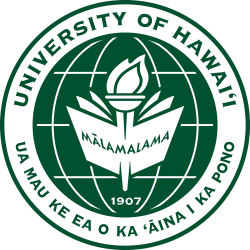 Institute of Pacific Islands Forestry, Pacific Southwest Research Station, USDA Forest Service [cgiardina@fs.fed.us; giardina@hawaii.edu]
Institute of Pacific Islands Forestry, Pacific Southwest Research Station, USDA Forest Service [cgiardina@fs.fed.us; giardina@hawaii.edu]
Bio
I am currently a research ecologist with the Institute of Pacific Islands Forestry in Hilo, Hawaii. I received my BS in Zoology with a minor in Political Science from Duke University. Following several years of working with homeless youth in New York City and then Denver, I went on to study non-violence and social change with Drs. Vincent Harding and Sudarshan Kapur at the Iliff School of Theology, where I received my MA in Religion (1993). Following completion of thesis work examining linkages between Miskito Indian autonomy and resource management in Northern Atlantic Autonomous Region, Nicaragua, I went on to complete an MS in forestry (1996) at Colorado State University, where my thesis work focused on sustainability of forest management practices in Oregon and Wyoming. After completing my MS, I completed a PhD in biology (1999) from the University of Denver, where my dissertation research focused on the sustainability of traditional agroforestry practices in Jalisco, Mexico. Following a post-doc at the University of Hawaii at Manoa looking at the ecology of intensively managed forests, I went on to a position with the USDA Forest Service looking at climate change effects on forests from stand to landscape scales.
Projects
My current research interests include: forest responses to global change; restoration of ecosystem processes in degraded landscapes; and, production ecology and biogeochemistry. I also am pursuing research on how communities influence even control landscape change, especially in the face of climate change, and how communities are integrating an ethic of sacredness back into land management. This research is important because ultimately society benefits most when communities are intimately linked, in relationship with the natural resources that sustain life. Understanding how we can enhance these connections as part of the restoration and management process can only strengthen both resources and community.

